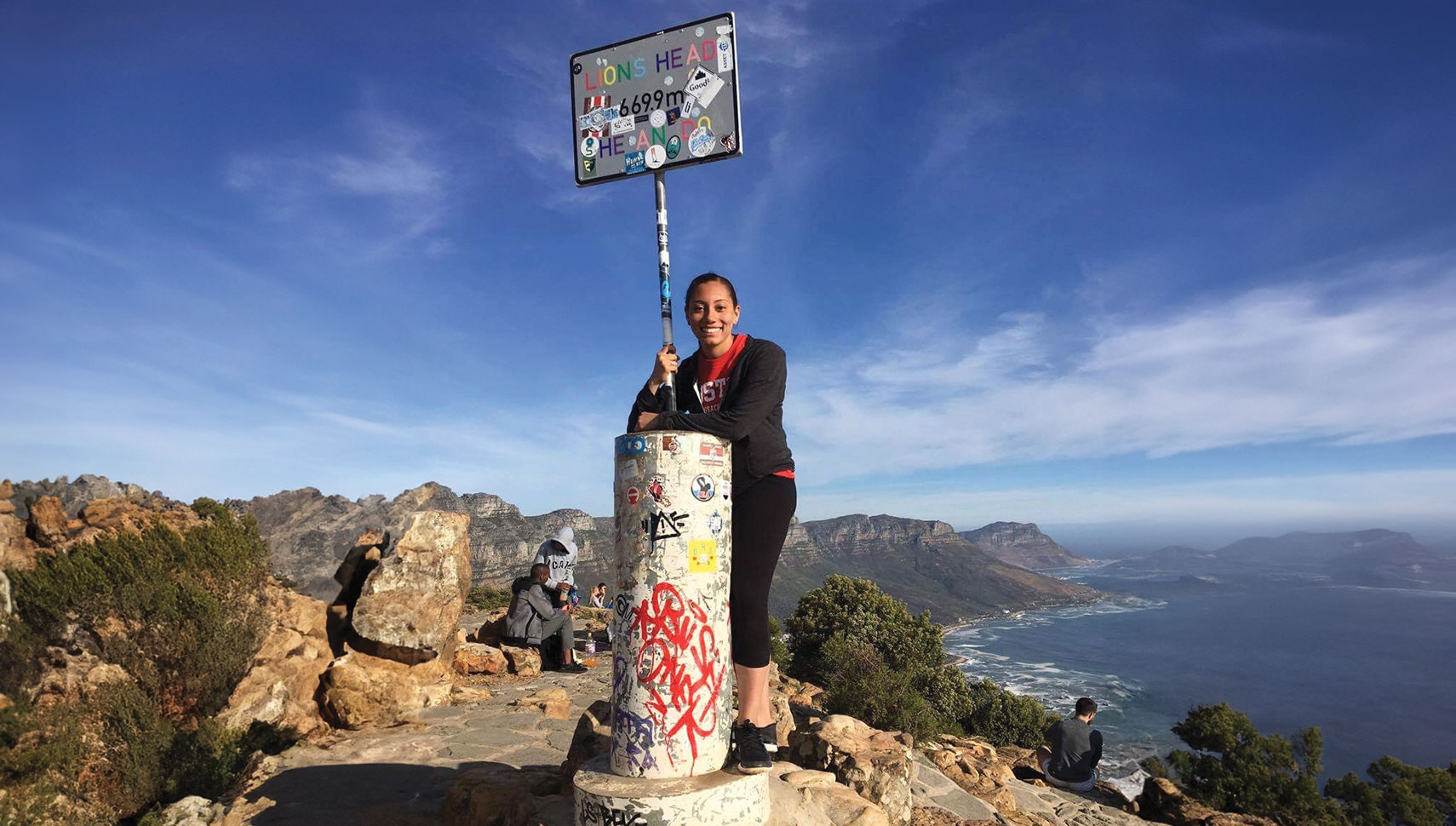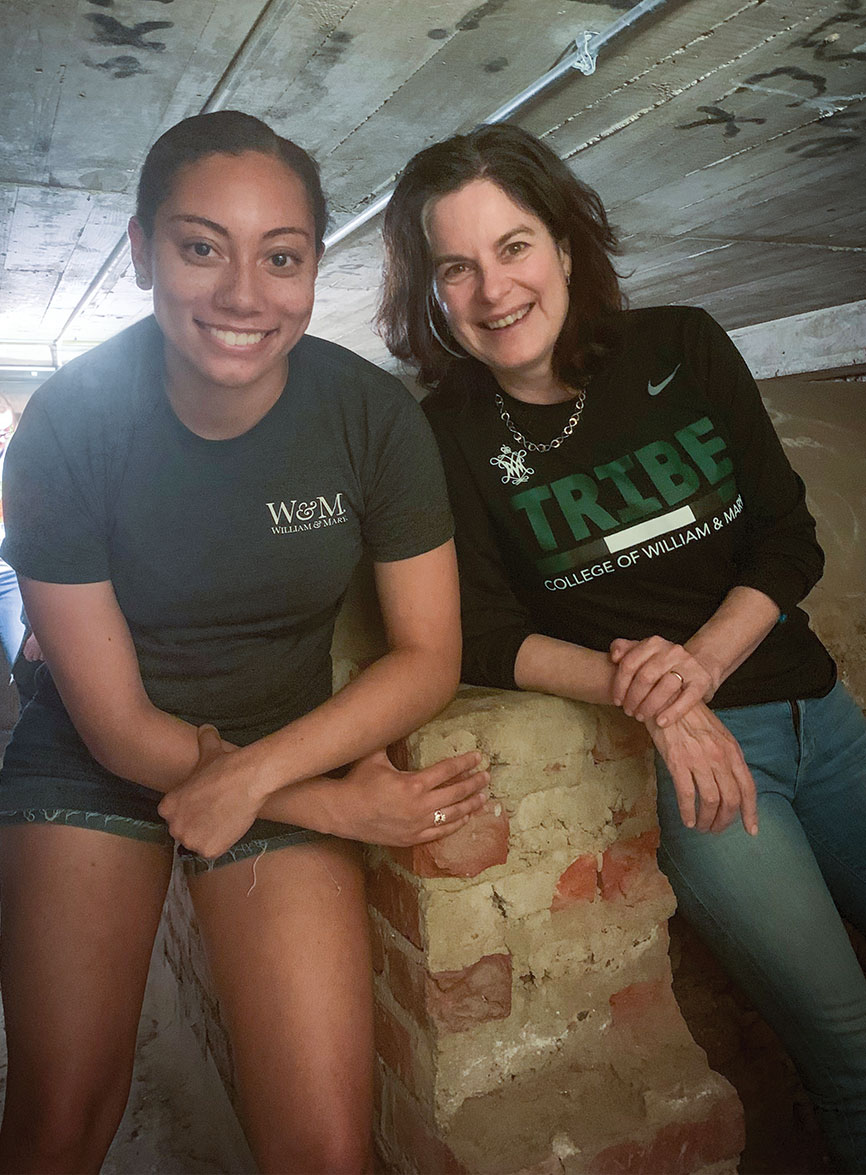Building Peace
A study abroad experience and internship drew Brianna Ferebee '19 to international development and peace building
October 15, 2023
By
Mary Beth Bauermann ’24

You never know when an element of your William & Mary experience, whether it be specific coursework, a study abroad program or even a paper for a class, will come in handy out in the real world. Brianna Ferebee ’19 has drawn on all these and more on the path to her professional career in international development.
In May, she stepped into a new role of program specialist at the United States Agency for International Development in the Bureau for Conflict Prevention and Stabilization, where she works on policy and partnerships for peace building on issues such as atrocity prevention and the role of women in peace and security. For the position, she draws upon her educational background in international relations and anthropology, her experiences studying in South Africa and at the W&M Washington Center, as well as her work with W&M’s AidData research lab.
From the moment she set foot on campus, Ferebee knew she wanted to study international relations. In her coursework, she discovered a significant overlap with anthropology, illuminated in questions such as, “How does a country view the U.S. relationship and how can we include that local perspective in international development work?”
 Ferebee, who was involved in organizations such as the women’s rugby team, the W&M chapter of the NAACP and the Spotswood Society, didn’t want to leave campus for a full semester. However, she saw the importance of studying abroad: “I knew that I needed to see more of the world.” A summer program was the perfect solution. Ferebee decided to take a chance on a growing program at the University of Cape Town, where she studied international development through an anthropological lens and interned at a crosscultural learning center.
Ferebee, who was involved in organizations such as the women’s rugby team, the W&M chapter of the NAACP and the Spotswood Society, didn’t want to leave campus for a full semester. However, she saw the importance of studying abroad: “I knew that I needed to see more of the world.” A summer program was the perfect solution. Ferebee decided to take a chance on a growing program at the University of Cape Town, where she studied international development through an anthropological lens and interned at a crosscultural learning center.
Working with the Students’ Health and Welfare Centres Organization (SHAWCO), a health-related, student-led nongovernmental organization through UCT, Ferebee mentored school-age children in the Khayelitsha township. “These kids weren’t around in 1994 when apartheid ended, but growing up during these transitions, they were conscious of the changes going on around them,” she says. Such experiences helped Ferebee discover her passion for peace building, defined as working to create or sustain peace amidst conflict.
“I realized this is what I wanted to do. I wanted to focus on international development, particularly in Africa,” she remembers. The following summer, Ferebee interned with AidData, based in W&M’s Global Research Institute. Focusing on sustainable development goals, Ferebee connected AidData’s research to her observations in South Africa. “AidData was the ideal opportunity to see what development looks like in practice, how we can influence policy, where development organizations should pivot and where money is needed,” she says.
Having studied at the W&M Washington Center, Ferebee decided to enroll in an international development studies master’s program in Washington, D.C., at George Washington University’s Elliott School of International Affairs, concentrating in democracy, governance and peace building. She pursued a job at the United States Institute of Peace while taking nighttime classes. In the job interview, knowing that Sudan is a primary focus of the institute’s work, Ferebee mentioned a paper she wrote for a class she took during her senior year at W&M, “State Building in Africa” with Philip Roessler, the Margaret Hamilton Professor of Government. The paper focused on how lessons learned from 1990s South Africa could inform current challenges such as the Sudan conflict. “I connected that paper to USIP’s work and I think it helped me get the job,” she says.
At USIP, Ferebee co-wrote a blog post about work the institute was doing to address hate speech and disinformation campaigns in the Central African Republic in the aftermath of a disputed election. Seeing the implementation of peace-building programs while working on a contentious project on Sudan, Ferebee realized, “Sudan could be an example of where we do things differently.” Investigating questions such as, “How do we make sure Sudan’s peace agreement lasts?” led Ferebee to her current role at USAID, in which she focuses on similar issues at a broader, policy level.
“What I enjoy most is the opportunity to examine policies that have been released about how to do peace building differently,” explains Ferebee, noting the Global Fragility Act, which creates an interagency peace-building initiative, as one such policy. She works closely with the interagency to streamline peace building efforts. Daily, Ferebee expands and strengthens USAID partnerships with bilateral and multilateral donors, including the European Union countries and the United Nations, on conflict prevention and stabilization.
While busy in her role at USAID, Ferebee maintains her connection to W&M as a member of the Young Guarde Council. “I joined because I know how important that alumni-student connection is. I wanted to be that link; I wanted to be available in case other students are interested in this path,” she says. She also hopes to connect other recent alumni to each other and their alma mater.
For Ferebee, getting involved in Young Guarde is “an opportunity to give back, knowing how much William & Mary shaped me.”